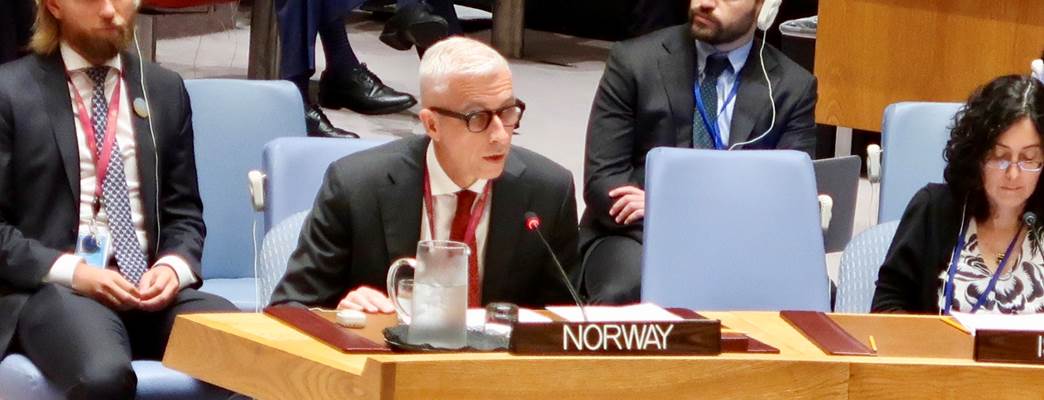President,
Only a negotiated two-state solution can create durable peace between Israelis and Palestinians. Economic development and institution building are essential building blocks for a future Palestinian state. But it cannot substitute the need for a political resolution to the conflict.
Norway shares the concern for urgently improving the living conditions for the Palestinian people. It is crucial that UN Relief and Works Agency for Palestine Refugees maintains the capacity to deliver basic services – particularly healthcare and education – to Palestine refugees. This is also an important factor for regional stability. Norway will therefore continue to support UNRWA both politically and economically.
A key challenge remains; how to implement the projects, which can lead to stability, growth and economic development, in preparation for a negotiated two-state solution. The obstacles are many and of a political nature, such as the continued occupation and restrictions in access and movement as well as internal Palestinian divisions. We call on all involved to take steps to reverse the current negative trends on the ground, including settlement activity and acts of violence.
We strogly regret the Israeli Governemnt's ongoing demolitions of Palestinian buildings in Wadi al Hummus, part of Sur Baher in occupied Jerusalem.
Norway is deeply concerned about the current financial situation of the Palestinian Authority. The international donor group for Palestine - the AHLC - remains the international framework to address economic issues between the two parties and the donors.
Norway will chair the next meeting of the AHLC here in New York on the 26 September. The key priority is to develop a common strategy to implement concrete measures that will strengthen the Palestinian economy and improve the dire situation in Gaza.
President,
Regarding Syria, we express support for the early establishment of a Constitutional Committee. We call for trust-building measures that will contribute to the conducive atmosphere for the committee's work, including prison releases - initially prioritizing women and children. Norway also encourage the return to de-escalation in Northwest Syria, and the launch of a genuine political process.
President,
The increased tension in the Gulf-region is of great concern. It is critical that all actors refrain from actions and statements that may further escalate the situation. Iran’s seizure of ships in the Gulf is unacceptable and contributes to further escalating the tense situation. As a leading shipping nation, freedom of navigation and free flow of commerce is crucial for Norway to secure international trade and cooperation.
Norway remains committed to preserve the Joint Comprehensive Plan of Action (JCPOA) with Iran. The agreement has a crucial role in international non-proliferation and for regional stability. We regret all steps that may jeopardize the agreement.
Recent enrichment activities by Iran are inconsistent with its commitments. With these activities, Iran is moving away from the agreement. We urge Iran to reverse course and return to full compliance. Norway strongly supports the ongoing measures by France, Germany, the UK and the EU to preserve the JCPOA.
President,
Norway express great concern about the situation in Yemen. It remains the world’s worst humanitarian crisis. We urge all parties to abide by the Stockholm agreement in its entirety, and commit to a political process under the guidance of UN Special Envoy Griffiths. We call on this Council to apply pressure on all parties to live up to their commitments enshrined in international human rights and humanitarian law. The de-escalation in Hodeidah is a positive step. It should be utilized for making further progress.
President,
Norway has a long-standing commitment to contribute to peace and security in the Middle East. We will bring this commitment with us, if elected as a member of this Council for the term 2021 and 2022. We will remain an active and consistent partner in supporting international efforts that ultimately lead to peaceful resolutions in the region.
Thank you.
